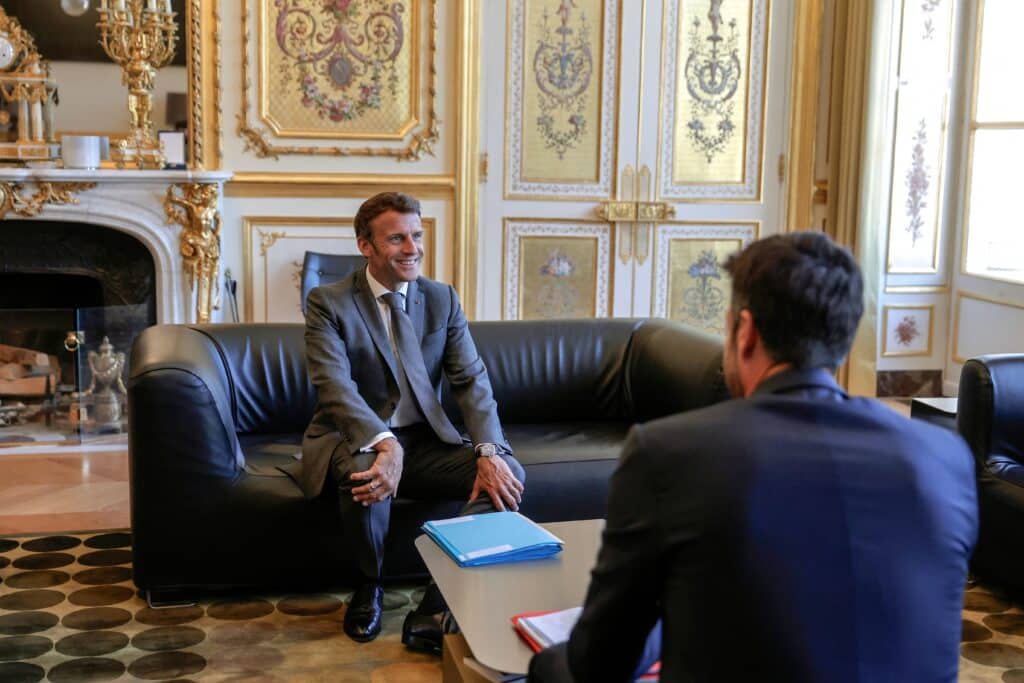Paris 2024 Olympics to be the most inclusive yet, organisers vow, despite trans sports bans

The Olympic rings placed in front of the Eiffel Tower. (Getty)
The 2024 Paris Olympics will be the most inclusive yet, organisers have vowed.
“Games wide open” will be the official slogan of the Paris Games, it was announced on Tuesday (26 July), to reflect organisers’ focus on disabled rights, LGBTQ+ rights and gender equality.
“‘Games wide open’ has really been our motivation from the start,” Tony Estanguet, president of the Paris 2024 Organising Committee, told The Independent.
“It’s a simple slogan that says exactly what is important for us.”
However, LGBTQ+ inclusion in the games will be impacted by continued attacks on trans athletes from various sporting bodies.
Already swimming bosses FINA have enacted an effective ban on trans women competing in elite events such as the Olympics, with others announcing reviews of their own policies.
Estanguet said that during a planning meeting, president Emmanuel Macron, along with his interior minister and the Paris police chief, pledged “total support” for plans to hold the opening ceremony along the Seine river, instead of at the Olympic stadium.

France’s President Emmanuel Macron (L) poses with Head of Paris 2024 Olympics Tony Estanguet (R) during a meeting at the Elysee Palace in Paris, on July 25, 2022.(Getty)
Boats will reportedly transport the participating athletes down the river past several landmarks that will be used as games venues, with around 600,000 spectators anticipated to attend. Organisers are expecting it to be one of the largest opening ceremonies in Olympic history.
While the prospect of the Paris opening ceremony sounds suitably stylish, 1976 Olympic gold medallist Guy Drut thinks it is unnecessarily risky.
“The idea is great, but in today’s climate, there are just too many uncertainties. Why isn’t there a plan B? We could have the same ceremony, watched by more people, on the Champ de Mars. That would be easier to keep safe,” Drut told Le Journal du Dimanche (via The Guardian).
The Toyko 2020 Olympics, held in 2021 after COVID-19 delays, was a major step in the right direction for LGBTQ+ inclusion in sports.
The games saw several LGBTQ+ athletes win medals, including British swimmer Tom Daley, American football player Megan Rapinoe, and Filipino boxer Nesthy Petecio.
It also made history as the Olympics’ first-ever out transgender and non-binary athletes competed, including New Zealand weightlifter Laurel Hubbard and Canadian football player Quinn, who won a gold medal. Overall, the games saw at least 183 openly LGBTQ+ athletes participating.
However, the recent wave of transphobic rhetoric across sports has left people divided on the future of trans participation in the Olympics.
The International Olympic Committee announced that, from March 2022, it would drop its trans athlete policy, leaving sports governing bodies to decide their own regulations on trans participation.
Several of those bodies, including the International Swimming Federation (FINA), have since created policies effectively banning trans participation.
FINA voted to ban trans women from elite level women’s competition on 19 June, only allowing individuals who “have not experienced any part of male puberty beyond tanner stage 2, or before age 12” to participate.
World Rugby banned trans women from playing at an elite level in 2020, while FIFA and World Athletics have said they are reviewing their rules.
Talking to PinkNews, trans swimmer Schuyler Bailar – who was the first trans man to compete in the National Collegiate Athletic Association’s (NCAA) top division, said banning trans women from sports would “endanger all women.”
“People will say ‘well, this is just about fairness’, but it’s not. It’s about concentrating power in the white, cisgender, straight male elite,” he said. “It enforces the policing of the women’s category and women’s bodies in order to exclude the trans ones – you have to police the category in order to exclude trans women.”

